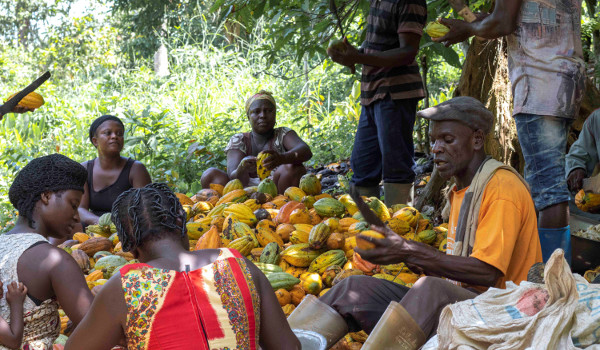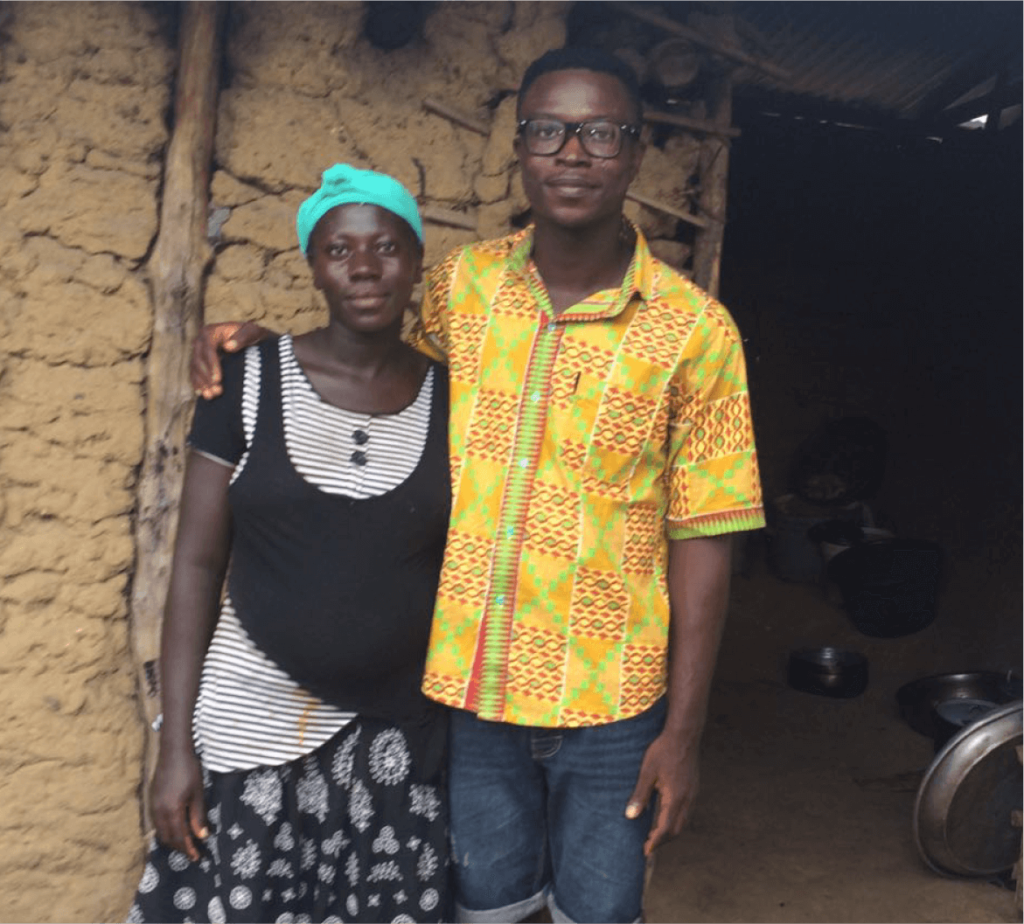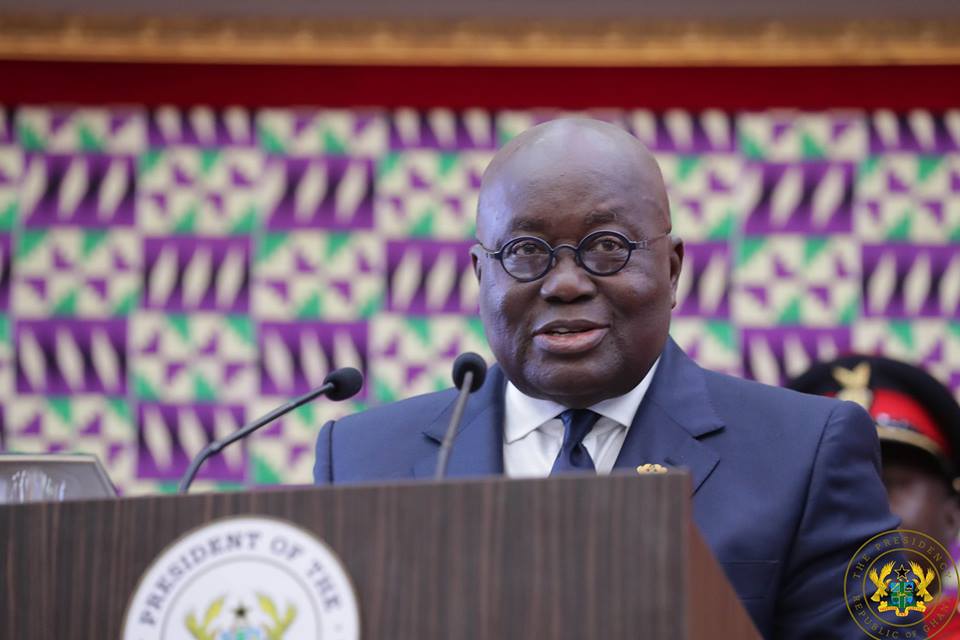Shadrack Frimpong, the founder and CEO of Cocoa360, is an entrepreneur who is transforming the way sustainable development is done in Africa by using revenues from community cocoa farms to facilitate and provide access to education and health treatments in remote villages where these farms are set up. In exchange, the beneficiaries work on a community-run cocoa farm.
“People grow cocoa across rural communities in Ghana but cocoa farmers and their families live on less than 50 cents a day,” says Frimpong. “My parents have been cocoa farmers for over 45 years and my village only got electricity in 2005. We thought that was injustice and we reasoned that if cocoa could generate that much revenue, we could use it as a force for good.”
Today, Cocoa360 has enrolled 126 students in schools and its community health centre has treated about 3,000 patients and delivered close to 40 babies.
How it started
Born and raised in Tarkwa Breman, a remote village in the Western Region of Ghana, Frimpong grew up in abject poverty without access to basic social amenities like running water and electricity. His father is one of the roughly 1.6 million cocoa farmers driving Ghana’s US$2bn cocoa economy. Yet, a vast majority of cocoa farmers are trapped in intergenerational poverty.
Unlike many people in his community who had bright educational prospects but were held back by economic barriers to education such as tuition fees and uniform costs, Frimpong was able to break from the mould. With support from a COCOBOD (the Ghana Cocoa Board) scholarship and street hawking, Frimpong enrolled at Opoku Ware School, Kumasi. He later won a full scholarship to the University of Pennsylvania, and became the first person in his village to attend college in the United States. He returned home with a degree in Biology, honoured as the Flagbearer, University Scholar and one of five students (and the first black student) in his graduating class awarded the prestigious $150,000 Amy Gutmann President’s Engagement Prize (PEP) for Penn seniors’ civic engagement projects.
Frimpong returned to Tarkwa Breman in 2015 to establish the nonprofit Cocoa360 with the PEP prize money as seed funding. Cocoa360 runs a community health clinic and a tuition-free school for girls in eight communities; pioneering a “farm-for-impact” model which uses proceeds from a community cocoa plantation to self-sustain the hospital and school.
Because Cocoa360 is a community-based and community-driven initiative, it works with a village committee who serves as the link between the organisation and the community to ensure that the programmes are continually in line with the needs of the community.
“I don’t believe in an organisation trying to do too many things. Cocoa360 has only one goal and a model – which is to use proceeds of cocoa to improve health and education outcomes. We can’t solve all the problems and that’s why we are just focused on education and healthcare. Our central mission has been how best we can put community members and people that are supposed to benefit from these interventions at the heart of decision making towards community development,” he says.
With 37 staff members on-board full time, Cocoa360 has offices in Ghana, London and the United States. While the office in Ghana is mainly for operations, both the other offices are for fundraising.
How the model works
Cocoa360 goes into cocoa communities to identify the greatest challenge – whether it is education or healthcare. “If the most pressing challenge is education, that’s what we will focus on. And in the case where the community already has a government school, our goal is not to re-invent the wheel but to strengthen the system that exists,” Frimpong explains.
In the case where the amenities are non-existent, the community provides a land or a matured cocoa farm which will be cultivated and maintained to provide the community needs.

“Things like land and farms are not something people just want to give away – these are things that pass through generations. So for a community to give you a farm, it means a lot to them,” says Frimpong. “In exchange, we make sure there is nothing stopping their child from attaining quality education. This includes taking care of tuition, uniforms, transport, and books. On their part, the parents provide labour on the farm. After harvesting, Cocoa360’s farm manager and the village committee meet to give a financial report to the community. The family members who have worked on the farm and community members will vote on how the profit will be used to offset non-salary expenses like uniforms, books, and transportation – which can prevent people from coming to school.
“The goal is to place lots of decision making in the hands of the community members. That way, the family and the community will be an active participant in the decisions that ensures that their child have quality education. And the reason why we make sure that people participate in the revenue generation discussions is because in our part of the world, ‘where your money goes, your heart goes’.”
Unfortunately not everyone has access to the school. “We can’t admit everybody,” Frimpong explains. “Each term, we admit only 30 students and this is quite challenging because sometimes, you may have up to 500 pupils vying for just 30 slots. Nevertheless, our preliminary monitoring and evaluation report shows clearly that our student attendance rate is at 98%, compared to the statistics of 60-70 % attendance rate in rural public schools in the country,” he says.
Surely it couldn’t have been that easy?
In the beginning, Frimpong had the support of some of his university classmates who are Ghanaians. “Although we are from different social economic background, these guys decided to join me in the first year to jumpstart Cocoa360 and that gave me a lot of motivation because I knew I was not alone.”
“We spent the first year getting to know people in the community – building bonds and gaining trust,” says Frimpong. “Even though they were my own people, it was different afterwards (coming back). There was the part where people had the perception that because I have schooled and lived abroad, I am different. We also faced the challenge of convincing the community to buy into the idea. But my mother encouraged me. She said: ‘at least try it for once, if it doesn’t work out, you will know you did your best. You will never walk around wondering what if?’.
“One of the early challenges I faced was people telling me I am too young. When I walked into government offices, they didn’t take me serious because of my age. Most of the time, I was able to get into certain places just because I told them I had graduated from an Ivy League school in the US,” he says.
“There is also the problem of bureaucracy. Registering an organisation in Ghana can be tough and then there are people who want to take bribes from you. I went through an educational system that emphasises ethical principles so there is no way you are going to get me to pay bribe and this prolonged things for us because I wanted to make sure that ethical principles are the foundation for us. Going against the grain of how things are done in Ghana caused us a lot of trouble.”
Another challenge Cocoa360 faced was hiring people to come and work in a rural community. “In my village, where our headquarters is, you have to climb a mountain to make a phone call. But so far, God has been good. We were able to get people who bought into the vision.”
Frimpong is currently studying for his Masters in Nonprofit Leadership to hone his leadership skills and organisational strategies. He plans to scale Cocoa360 into other communities this year. “The future is scaling those lessons we have learnt at Tarkwa Breman to strengthen the healthcare and educational systems in Ghana,” he says.
What we can learn
Frimpong’s work has merited many awards and recognitions, including the prestigious Queen’s Young Leader Award and the Samuel Huntington Public Service Award, which has past recipients such as US surgeon general, Dr Vivek Murthy. His efforts have been lauded by the United States’ White House, Ghana’s Flagstaff House, and the Clinton Global Initiative. In 2018, he was listed among Forbes 30 under 30 young business leaders around the world.
Frimpong credits Cocoa360’s success to leadership and team work. “Everything has to do with leadership and it shows how team work and passion can change things. I think when people see that you have a genuine intention and you don’t have a ‘me-me’ mentality, then they will do everything to make things successful.”
“I understand that some people want to start their own business because they have a fire in their belly, but I think what is not spoken enough is the question of leadership. If you must start a business, you must have extreme ownership. You have to own your failure, your leadership, your humility. You have to understand that the work you do is not about you. And trust me, when you do that, you will find amazing people to work with. In the end, no matter how much you pay people –what counts is their dedication to the mission,” he says.
Author: Oluwabusayomi Sotunde, www.howwemadeitinafrica.com



